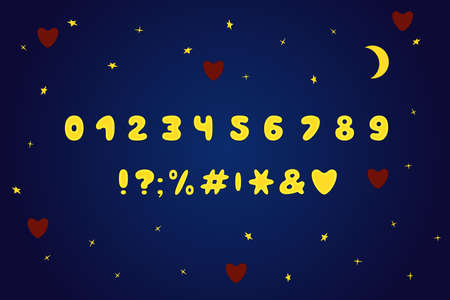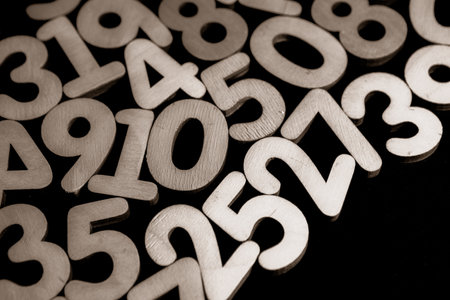Understanding Master Numbers in Numerology
To comprehend how master numbers influence relationships and compatibility, it is essential to begin with a logical breakdown of what master numbers are and their significance in numerology. In the field of numerology, master numbers refer specifically to the double-digit numbers 11, 22, and sometimes 33. These numbers are not reduced further when performing calculations, as they are believed to possess amplified energies and spiritual significance compared to other numbers. The presence of master numbers in one’s personal numerological chart is often interpreted as an indication of heightened potential, intuition, or purpose.
Within the UK context, numerology has gained increasing interest among individuals seeking alternative ways to understand themselves and their interpersonal dynamics. British culture, known for its pragmatic yet open-minded approach to self-development, has seen a steady rise in the acceptance of numerological insights. People across the UK are applying these principles to explore compatibility in friendships, romantic relationships, and even professional partnerships. Therefore, understanding the foundational role that master numbers play is crucial for anyone interested in using numerology as a tool for enhancing relationship harmony within British society.
2. Cultural Perspectives on Relationships in the UK
Understanding how master numbers influence relationships and compatibility in the UK requires first examining the unique social norms, values, and attitudes that shape British partnerships. The British approach to relationships is informed by a blend of tradition and modernity, underpinned by an emphasis on emotional restraint, respect for personal boundaries, and a pragmatic outlook towards partnership dynamics. This context creates a distinct environment in which the spiritual or numerological dimension—such as the presence of master numbers—can either reinforce or challenge prevailing attitudes.
Key Social Norms Shaping Relationships
British society traditionally values politeness, understatement, and emotional reserve in social interactions, including romantic relationships. While contemporary Britain has seen a shift towards greater openness and diversity in relationship forms (from civil partnerships to cohabitation), there remains a strong cultural emphasis on mutual respect, autonomy, and clear communication.
| Aspect | Traditional Value | Modern Shift |
|---|---|---|
| Communication Style | Indirect, reserved | More open but still measured |
| Commitment | Marriage-focused | Cohabitation and varied forms accepted |
| Compatibility Factors | Social background, family approval | Shared interests, emotional connection |
| Conflict Resolution | Avoidance of confrontation | Negotiation and dialogue encouraged |
The Role of Numerology within British Culture
While numerology is not mainstream in the UK, it finds resonance among individuals seeking deeper meaning or alternative perspectives on relationships. Master numbers (11, 22, 33) are often interpreted as signals of heightened potential or spiritual alignment. However, their influence is filtered through the British lens—often approached with curiosity yet balanced by scepticism and practicality.
Synthesis: Integrating Master Numbers with British Relationship Values
The interplay between numerological insight and British cultural expectations creates a nuanced framework for understanding compatibility. Individuals intrigued by master numbers may use them as tools for self-reflection or guidance while still prioritising the distinctly British values of personal space, mutual respect, and steady commitment. This integration allows for both spiritual exploration and grounded partnership-building within the UK context.

3. How Master Numbers Influence Personal Dynamics
In the context of the UK, where interpersonal relationships are often influenced by a blend of tradition, subtlety, and evolving social norms, master numbers—11, 22, and 33—can significantly shape personal dynamics. Understanding these numbers within the British cultural framework allows for deeper insight into how individuals interact, form bonds, and navigate compatibility.
Master Number 11: Intuitive Connection and Empathy
People with master number 11 tend to possess heightened intuition and emotional sensitivity. In UK society, where understated communication and reading between the lines are valued, those influenced by 11 often excel at perceiving unspoken needs or tensions within relationships. Their ability to empathise can foster strong, supportive partnerships but may also lead to feeling overwhelmed if not balanced with self-care. Their presence in friendships or romantic connections often brings a sense of depth and genuine understanding.
Master Number 22: Practical Vision and Collaboration
The energy of master number 22 combines ambition with pragmatism. Within the British context, which appreciates both vision and grounded action, individuals influenced by 22 are seen as reliable partners—whether in business, friendship, or romance. They have a knack for turning ideas into reality and supporting others in achieving shared goals. This practical idealism means they often play pivotal roles in family structures or community groups, helping to create stability and long-term growth within their personal circles.
Master Number 33: Compassionate Leadership and Altruism
Master number 33 is associated with nurturing, compassion, and service to others. In the UKs increasingly diverse and socially conscious environment, those guided by 33 naturally step into roles that require empathy and collective responsibility. They are often the ‘glue’ that holds groups together—offering support during difficult times or championing causes that benefit their loved ones. Their approach to relationships is holistic; they seek harmony and encourage open communication, making them valuable confidants and partners.
Patterns Shaped by Master Numbers in UK Relationships
The influence of master numbers extends beyond individual traits—they actively shape interpersonal patterns. For example, an 11’s intuitive nature complements the pragmatic outlook of a 22, fostering balance in partnerships. Similarly, a 33’s nurturing energy can help diffuse tension in typically reserved British social settings. Recognising these patterns enables individuals to navigate differences more effectively and build lasting compatibility within the unique tapestry of UK relationships.
4. Compatibility Insights: Master Numbers and British Relationship Patterns
Understanding compatibility through the lens of master numbers—11, 22, and 33—offers a unique perspective on relationships in the UK. These master numbers are associated with heightened intuition, ambition, and compassion, often leading to complex dynamics when paired either together or with non-master numbers. In the context of typical British relationships, which value stability, communication, and mutual respect, these pairings can introduce both opportunities and challenges.
Systemic Pairing Analysis
When master numbers pair with each other, there is often an intense synergy characterised by visionary goals and high emotional awareness. However, such intensity may also result in power struggles or emotional overwhelm if not managed thoughtfully—a pattern not uncommon in ambitious UK couples navigating career pressures or societal expectations. Conversely, when a master number partners with a non-master number (e.g., a 4 or 6), the relationship dynamic tends to balance out; the practical energy of non-master numbers can ground the idealism of masters, mirroring traditional British values of pragmatism and reliability.
Typical UK Scenarios
Consider common British relationship scenarios such as cohabitation before marriage, balancing work-life commitments, or navigating extended family gatherings. Master-master pairings may excel at creative problem solving during these times but might clash over leadership roles or divergent visions for the future. Master-non-master pairings usually find smoother collaboration on daily routines and long-term planning—an essential feature in the structured context of British domestic life.
Compatibility Table: Master and Non-Master Pairings
| Pairing Type | Strengths (UK Context) | Potential Challenges |
|---|---|---|
| Master 11 + Master 22 | Visionary thinking, strong communication skills, shared ambition | Risk of competition or emotional burnout due to high expectations |
| Master 11 + Non-Master 4 | Balance between inspiration and practicality; good for building stable home environments | Possible misunderstandings if one partner feels overlooked or undervalued |
| Master 22 + Non-Master 6 | Synergy in family planning and community involvement; aligns with traditional British values | Tension if master number’s drive overshadows the nurturing qualities of non-master partner |
| Master 33 + Master 11 | Deep empathy combined with creative vision; supportive during social events or challenges | Difficulties may arise from differing emotional needs or approaches to conflict resolution |
This systemic breakdown demonstrates how understanding numerological pairings can help British couples navigate their relationship journeys more consciously. Recognising the inherent strengths and likely friction points in these combinations enables partners to adopt strategies that honour both their individual natures and the cultural backdrop of UK relationship norms.
5. Practical Applications and Real-World Examples
To truly appreciate how master numbers influence relationships and compatibility within the UK context, it is essential to examine real-life scenarios and authentic anecdotes. The following examples demonstrate the practical impact of master numbers on interpersonal dynamics, reflecting British cultural nuances, communication styles, and societal expectations.
Case Study 1: The London Entrepreneur Couple (Master Numbers 11 & 22)
Sophie, a marketing executive in London with a Life Path Master Number 11, is known for her visionary ideas and intuitive approach to problem-solving. Her partner, Daniel, an architect with a Master Number 22, brings a grounded practicality and ambition to their relationship. Their compatibility shines through their shared ambition—Sophie’s inspiration sparks innovative projects, while Daniel’s methodical execution turns concepts into reality. However, their journey has not been without challenges; Sophie’s sensitivity sometimes clashes with Daniel’s focus on tangible results. Through open communication—a hallmark of British relationship culture—they learn to bridge emotional intuition with pragmatic action, creating a harmonious partnership that balances dreams with deliverables.
Case Study 2: The Manchester Friends (Master Numbers 33 & 11)
In Manchester, friends Olivia (Master Number 33) and Ben (Master Number 11) exemplify how master numbers interact in platonic relationships. Olivia’s nurturing disposition as a “master teacher” complements Ben’s visionary mindset. Their friendship thrives on mutual support: Olivia encourages Ben’s creative pursuits, while Ben inspires Olivia to step outside her comfort zone and explore new perspectives. In moments of conflict—often rooted in differences between Olivia’s desire to help everyone and Ben’s occasional need for solitude—they turn to honest dialogue and typically British humour to diffuse tension. This illustrates how understanding each other’s numerological strengths can foster lasting bonds.
Case Study 3: Cross-Cultural Partnership in Bristol (Master Number 22 & Non-Master Number)
A Bristol-based couple, Emily (Master Number 22) and Ahmed (Life Path 6), offer insights into cross-cultural compatibility influenced by numerology. Emily’s drive for building lasting legacies often pushes the couple towards ambitious joint ventures, from community volunteering to property development. Ahmed’s nurturing and harmonious nature helps balance Emily’s intensity, providing emotional grounding when ambitions run high. Their ability to openly discuss goals—a feature valued in UK relationships—enables them to leverage their differences constructively. By recognising each other’s core motivations through numerology, they reinforce trust and cooperation across cultural lines.
Key Takeaways for UK Relationships
These cases highlight that integrating master numbers into relationship analysis offers practical advantages in the UK setting. Whether navigating romantic partnerships or friendships, understanding the unique energies of master numbers can deepen empathy, enhance communication, and strengthen compatibility. Moreover, tailoring these insights to British values—such as respect for individuality, understated communication, and appreciation of diversity—ensures that numerological guidance remains relevant and impactful in everyday life.
6. Navigating Challenges and Harnessing Strengths
Master numbers such as 11, 22, and 33 can present unique relational challenges, particularly in the context of British culture where understated communication, emotional reserve, and a preference for subtlety often define interpersonal dynamics. Individuals influenced by master numbers may feel a heightened sense of purpose or intensity that sometimes clashes with the UK’s cultural inclination towards moderation and ‘keeping calm’. It is essential to recognise these potential friction points to foster greater understanding in relationships.
Addressing Common Obstacles
One prevalent challenge is the tendency for master number individuals to experience emotional highs and lows or a drive for idealism that may appear overwhelming to partners who value stability and tradition. Open and honest communication—delivered with characteristic British politeness—can help bridge this gap. For example, using gentle humour, active listening, and expressing needs without grandiosity aligns well with local customs while still honouring one’s deeper drives.
Practical Strategies for Compatibility
- Embrace Emotional Intelligence: Rather than suppressing deep feelings, channel them constructively. Seek support networks—such as local community groups or counselling services—that respect privacy yet encourage authentic sharing.
- Value Individuality: Master numbers are often drawn to big ideas or creative pursuits. Partners should acknowledge this need for self-expression by providing encouragement without judgement, which resonates with the UK ethos of personal autonomy.
- Respect Boundaries: British relationships often thrive on respecting personal space. Master number individuals must learn to balance their desire for connection with the need for healthy boundaries.
Leveraging Unique Advantages
The visionary qualities of master numbers can be a tremendous asset when channelled into joint goals—be it nurturing a family, launching a business, or supporting charitable causes. The UK’s rich tradition of community service and innovation offers numerous outlets for master number energy. Couples might consider volunteering together or participating in local initiatives, thereby strengthening both their bond and their ties to the wider community.
Ultimately, successful navigation of these challenges lies in embracing both the intensity master numbers bring and the nuanced approach valued within UK society. By blending visionary ambition with cultural sensitivity, couples can transform potential obstacles into opportunities for profound growth and mutual fulfilment.


